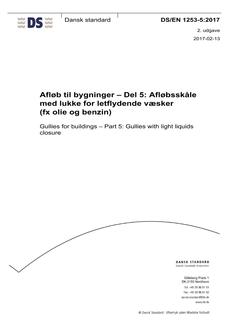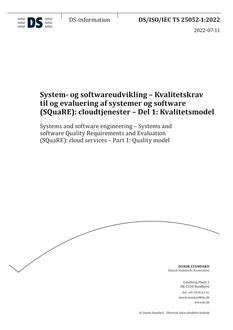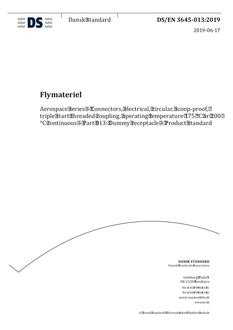-
-
Available Formats
- Availability
- Priced From ( in USD )
-
Available Formats
-
- Immediate download
- $101.00
- Add to Cart
-
- Printed Edition
- Ships in 1-2 business days
- $101.00
- Add to Cart
Customers Who Bought This Also Bought
-

DANSK DS/EN 1253-5
Priced From $38.00 -

DANSK DS/ISO/IEC TS 25052-1
Priced From $64.00 -

DANSK DS/ISO 5489
Priced From $64.00 -

DANSK DS/EN 3645-013
Priced From $38.00
About This Item
Full Description
This International Standard provides a general framework for material flow cost accounting (MFCA). Under MFCA, the flows and stocks of materials within an organization are traced and quantified in physical units (e.g., mass, volume) and the costs associated with those material flows are also evaluated. The resulting information can act as a motivator for organizations and managers to seek opportunities to simultaneously generate financial benefits and reduce adverse environmental impacts. MFCA is applicable to any organization that uses materials and energy, regardless of their products, size, structure, location, and existing management and accounting systems. MFCA can be extended to other organizations in the supply chain, both upstream and downstream, thus helping to develop an integrated approach to improve material efficiency in the supply chain. This extension can be beneficial because waste in an organization often is driven by the nature of materials provided by a supplier or the specification of the product requested by a customer. By definition, general management accounting and environmental management accounting (EMA) focus on providing organizations with information for internal decision-making. MFCA, one of the major tools of EMA, also focuses on information for internal decision-making, and is intended to complement existing environmental management and management accounting practices. Thus, MFCA, as is the case with EMA and general management accounting, focuses on internal costs. Although an organization can choose to include external costs in an MFCA analysis, external costs are out of the scope of this International Standard. The MFCA framework presented in this International Standard includes common terminologies, objective, principles, fundamental elements, and implementation steps. However, detailed calculation procedures or information on techniques for improving material or energy efficiency are out of the scope of this International Standard. In addition, this International Standard is not intended for the purpose of third party certification.





